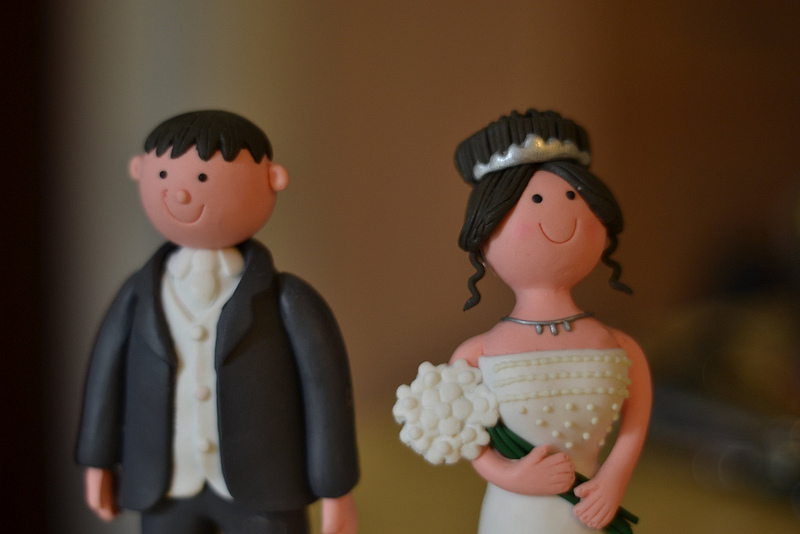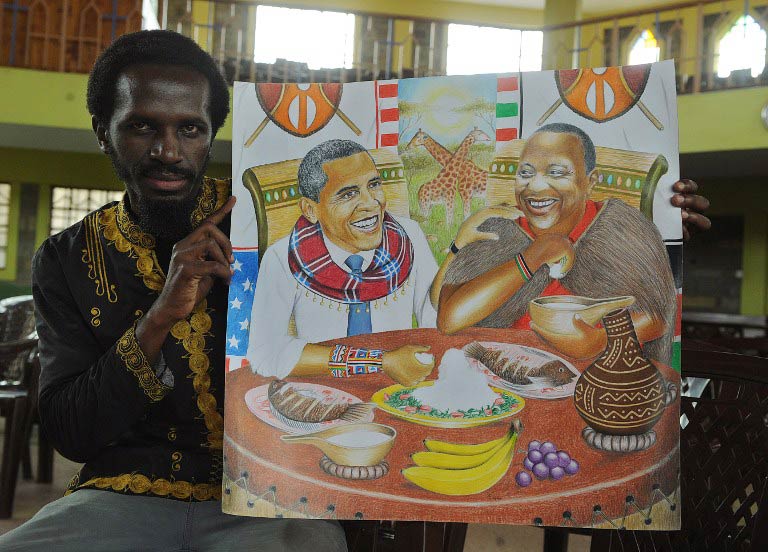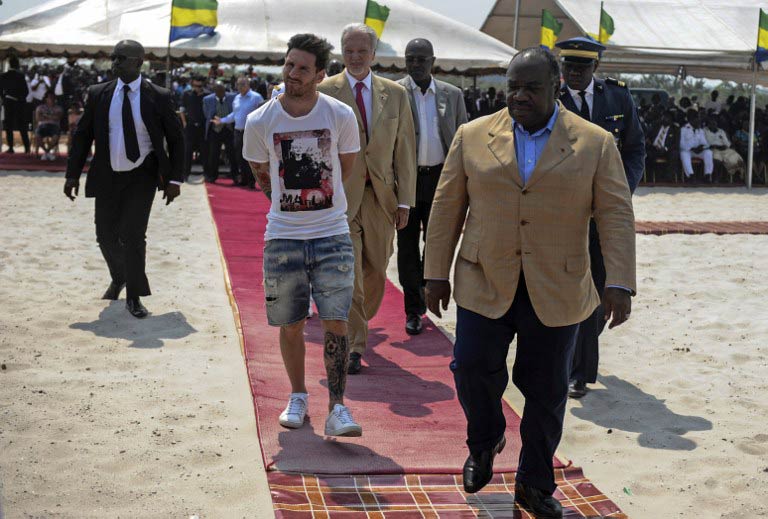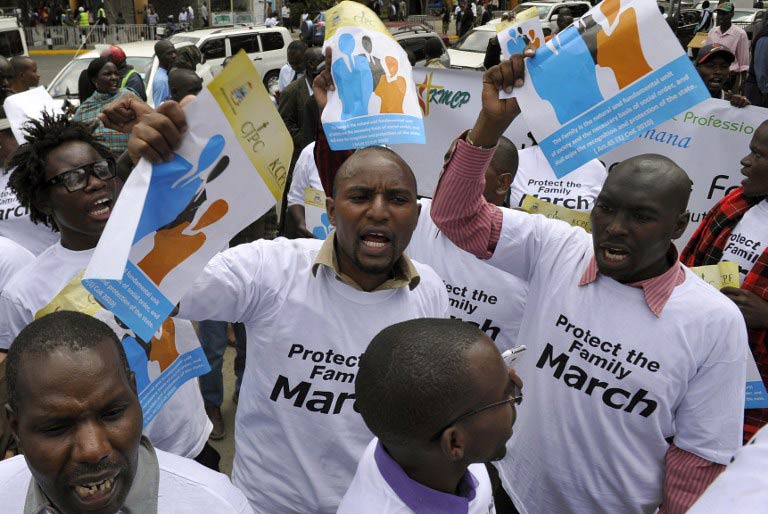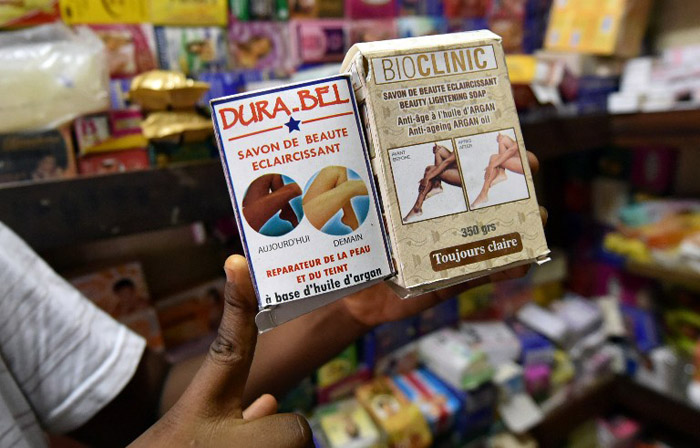
At just 26, Fatou’s skin is marbled from layer on layer of whitening cream. Some even call her a “salamander” woman after the little reptile with light spots and translucent skin.
But nothing can stop the hairdresser in Côte d’Ivoire’s commercial capital Abidjan from using the skin-lightening cream in her quest for a paler complexion.
“I love light skin,” Fatou said. “I can’t stop.”
Many Ivorian women – as well as more and more men – are using creams with dangerous chemicals for depigmentation, despite government attempts to stop the practice.
In late April, Côte d’Ivoire banned whitening creams because of the negative health effects associated with them, ranging from white spots and acne to cancer.
If applied liberally, the cosmetics can also cause high blood pressure and diabetes, according to Professor Elidje Ekra, a dermatologist at Abidjan’s Treichville university hospital.
The banned products include creams containing mercury, certain steroids, vitamin A, or with hydroquinone levels above two percent.
Hydroquinone is often used in black and white photography and is banned as a skin-lightening ingredient in Europe as it is considered a potential carcinogen.
The dangers don’t seem to deter consumers, though.
Pressure from men
While no official statistics are available, “tchatchos” – or those with lightened skin, often recognisable by their darker knuckles and elbows — are omnipresent in Abidjan.
Businesses continue to sell the whitening products, because they know people will continue to buy them despite the risks.
“We know that our lightening products are dangerous,” an executive for an Ivorian cosmetic company said, adding that a ban would be counterproductive.
“It would push consumers to make their own products, which would be even worse.
“At least we know the composition.”
Some women say that it’s societal pressure – particularly from men – that forces them to lighten their skin.
“It’s men that push women to become lighter,” said Marie-Grace Amani, who has been whitening her skin for the past four years.
Côte d’Ivoire’s Health Minister Raymonde Goudou Coffie agrees.
Ivorian men “love women who shine in the night”, she told AFP. “They bring light and glow in the bedroom.”
Measure still an ’empty shell’
Three months after the new law was introduced – which could entail a fine of 50 000 to 350 000 CFA francs (US$83 to $585) for violators – salons are still advertising their lightening products.
Whitening soaps with names like “Glow and White” and “Body White” leave little doubt as to their intended use.
“After raising awareness, we will move to the next phase of removing products from the market,” Coffie said.
A national evaluation and marketing authorisation committee has been set up to ensure implementation of the measures, but one of the biggest fights could be against cultural beauty standards.
Lightened faces continue to proliferate on billboards in Abidjan, with the featured models flaunting fair skin.
Ekra says that while it’s a great initiative, the text is still an “empty shell”.
“We see women on national television who use the corrosive products,” said Ekra.
“Do those that enforce the measure even respect it?”
If people want to lighten their skin, experts say they’ll always find a way to do it.
“We tell people it’s not good for their health, but if they find something good there… we cannot forbid someone to do what they wish,” said Paul Aristide Kadia, who sells the products.
The practice is not only present in Côte d’Ivoire but widespread elsewhere in Africa, as well as in large parts of Asia.
In nearby Senegal, people mobilised against skin lightening in 2013, but failed to get a ban on products.

